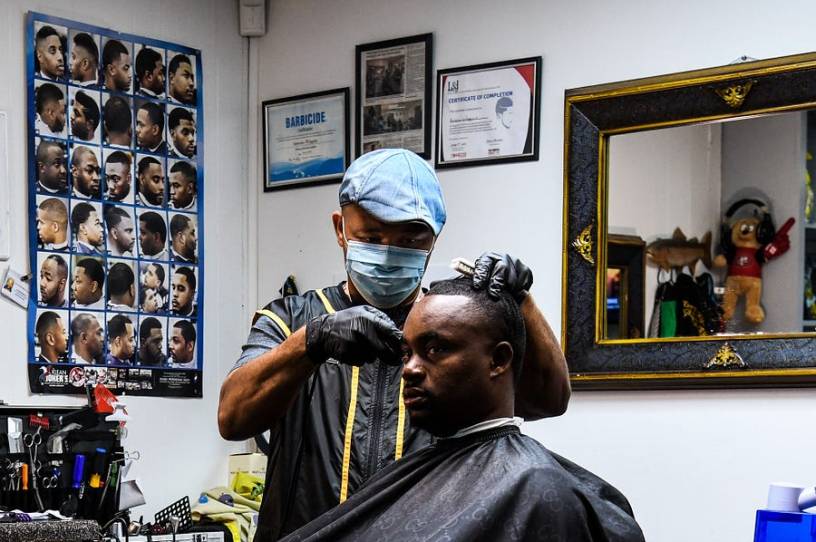We Need Antitrust Reform—For the Little Guy

Overhauling antitrust is in vogue. Just last month the House Judiciary Committee launched a new series of hearings to flesh out potential changes to America’s current approach to antitrust enforcement. On Thursday, the Senate Judiciary Committee’s Subcommittee on Competition Policy, Antitrust, and Consumer Rights is having a hearing on antitrust reform. And, in a sign of the times, left-of-center advocates want to ensure antitrust enforcers adopt an “anti-racist” agenda that places marginalized communities at the front of the discussion.
So often when we hear about antitrust, we think about the government seeking to break up large corporate monopolies. Before Google and Facebook, it was Microsoft. Before that, Ma Bell. But there is plenty of anti-competitive behavior that takes place outside of the realm of big business, and there is a way to reform such behavior that also places an emphasis on protecting disadvantaged communities: Congress can overturn the “state action doctrine” as applied to occupational licensing boards. This doctrine has long allowed semi-governmental occupational licensing boards to act in a blatantly anti-competitive manner—one that has a stark and disproportionate impact on minorities, the poor, and small-business entrepreneurs.
The overwhelming burden these occupational licensing requirements place on these groups is staggering, keeping people from earning an honest living, providing for their families, and contributing to society in the profession of their choice. These requirements include expensive schooling to certify practical skills that can be learned in other ways, or policies that limit participation in fields in the name of “safety,” when those safety issues are overblown.
In the 1950s, 1 out of every 20 people in the United States needed a license to do his or her job. Today, it’s 1 out of every 4. From the Obama administration to President Donald Trump to President Joe Biden, virtually everyone recognizes that something is horribly amiss. Even the Federal Trade Commission (FTC) released a detailed report in 2018 highlighting the dangers of overly burdensome occupational licensing and its disproportionate negative effects.
Bad board behavior is rampant. In recent years, Arizona’s cosmetology board cracked down on a student helping his community by cutting hair for people experiencing homelessness. Had Republican Gov. Doug Ducey not stepped in to help, the student’s career could have been ruined. African hair braider Isis Brantley was once arrested for braiding hair without a cosmetology license—a license that wouldn’t have even taught her to braid hair. In Louisiana, elderly widow Sandy Meadows was prevented by the board from earning a living arranging flowers because Louisiana requires a license to do so and she couldn’t pass an exam with a lower pass rate than the state’s bar exam. When she died, she was living in poverty.
The dirty open secret of occupational licensing boards is that they are often composed almost exclusively of people in the industry who have a direct stake in keeping others out. Cosmetology boards are often stocked with salon owners, for example. This kind of collusive, anticompetitive behavior aimed at entrenching incumbents to the detriment of workers, consumers, and society more broadly is exactly why we have antitrust laws in the first place.
The problem isn’t that enforcers don’t want to act—it’s that they can’t because of the “Parker” or “state immunity” doctrine. For nearly 80 years, there have been severe limits on how federal agencies and private plaintiffs could enforce America’s antitrust laws against a state-sanctioned entity, like an occupational licensing board. Under this doctrine, states are overwhelmingly protected from any kind of antitrust scrutiny, minus a few narrow exceptions.
Thankfully, courts have somewhat pulled back on this doctrine in recent years. In 2015, in a case involving non-dentists who were offering inexpensive teeth-whitening services, the Supreme Court refused to extend this immunity to North Carolina’s state dental licensing board because it was not actively supervised by the government and was composed of self-interested market participants. This decision was a step in the right direction, although its holding was narrow and the Parker doctrine was left largely intact.
Excluding competitors and keeping new entrants out of the market without reason is anticompetitive and should be punished, even when given a state’s stamp of approval. With its laser focus on antitrust, Congress is well-suited to take up the mantle on this issue.
Congress should empower antitrust enforcers like the FTC and DOJ to bring suits against these collusive bodies for their blatantly anticompetitive conduct. It can do this by overturning the state action doctrine’s application to licensing boards and allowing courts to look behind the veil of these “governmental” boards to gauge meaningfully whether they are engaging in intentionally anticompetitive conduct.
And even if Congress doesn’t want to go that far, it could greatly limit this doctrine by placing certain requirements on a state hoping to invoke it. For example, it could require states to adopt a policy of finding the least restrictive means of regulating a profession or provide judicial review for licensing decisions, and then tie their antitrust immunity to meeting that requirement. This was the approach taken by Sen. Mike Lee (R-Utah) in the Restoring Board Immunity Act of 2017.
Overzealous occupational licensing boards have been in the driver’s seat for far too long; it’s about time for their license to get revoked.
Trace Mitchell is policy counsel at NetChoice, an organization working to make the internet safe for free enterprise and free expression. Shoshana Weissmann is a fellow at the R Street Institute, a free-market think tank.